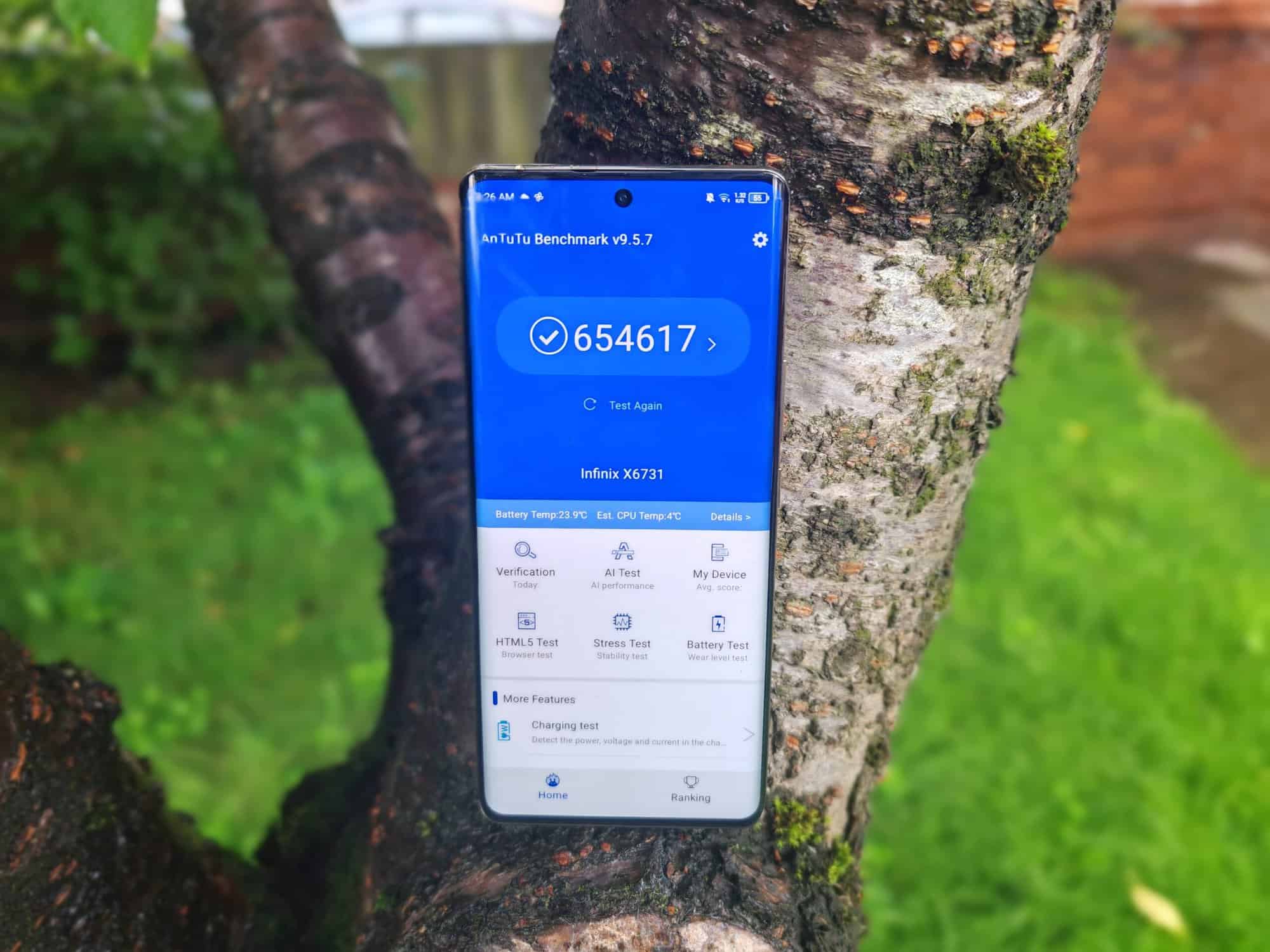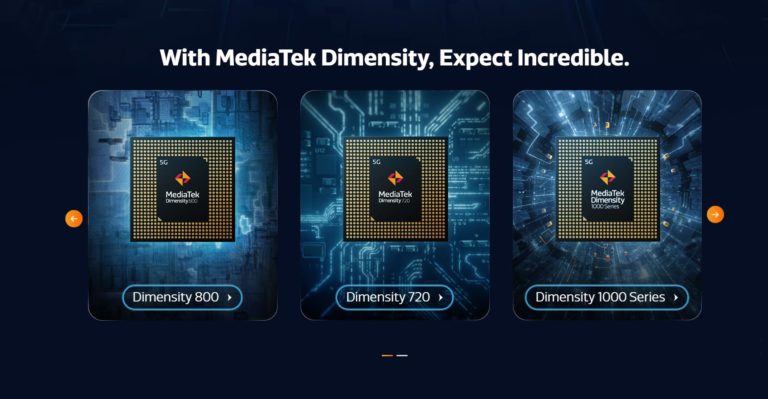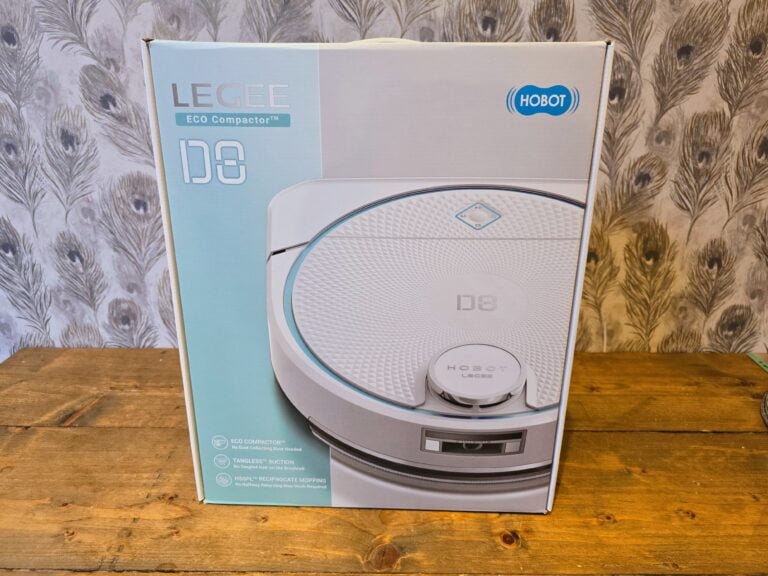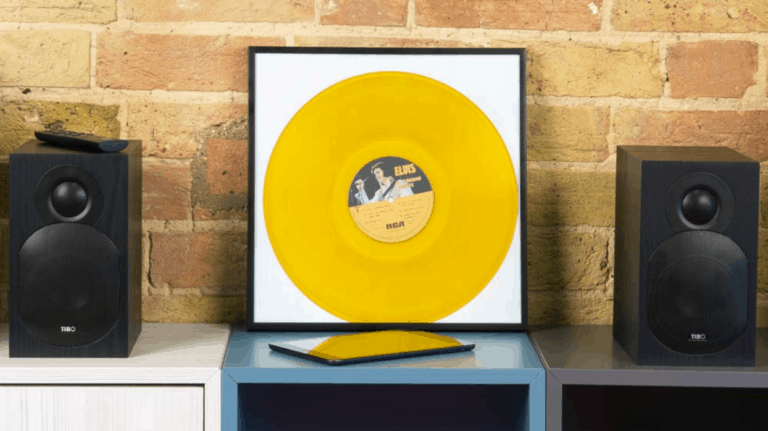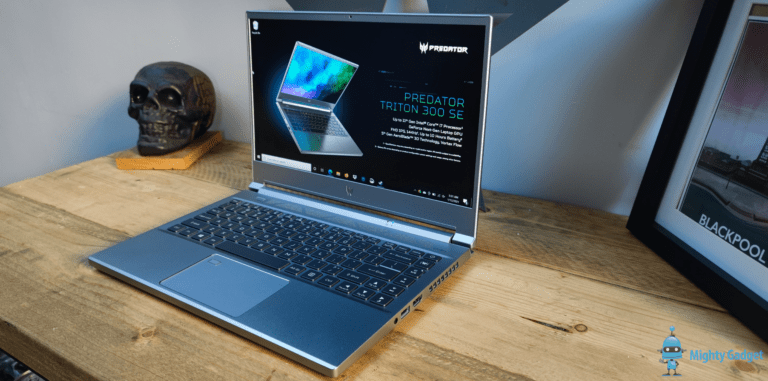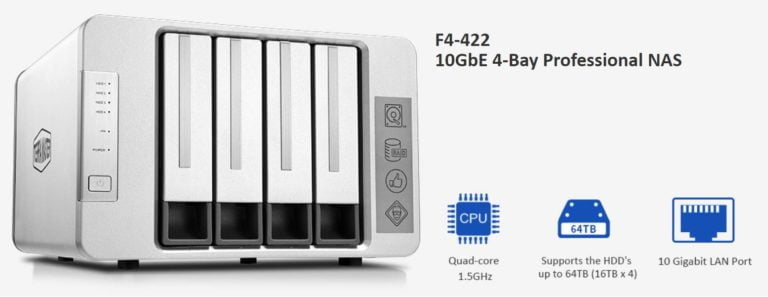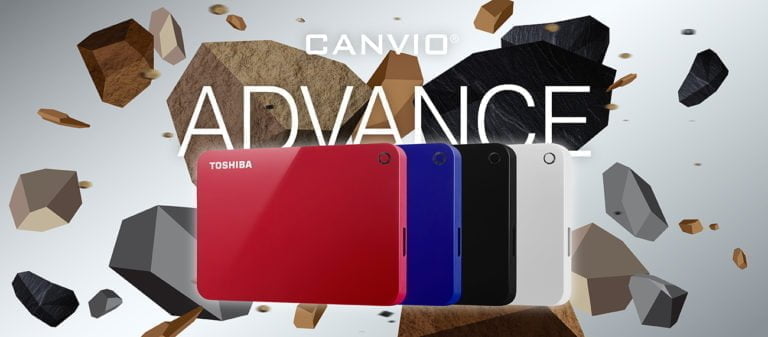Any links to online stores should be assumed to be affiliates. The company or PR agency provides all or most review samples. They have no control over my content, and I provide my honest opinion.
Today, Infinix has announced the Infinix Zero 30 5G, which appears to be the successor to the Infinix Ultra, which I reviewed in October 2022.
The Infinix Zero 30 has a significantly upgraded chipset from its predecessor, which is essential as it helps justify the higher price point that Infinix wants for the Zero models.
Recently, I have also reviewed the Infinix Note 30 VIP and the GT 10 Pro, which use the Dimensity 8050. This is fractionally better than the 8020 on the new Zero 30, and I am not really sure why Infinix would use a slightly slower chipset on their premium phone.
MediaTek Dimensity 8020 vs Dimensity 8050 vs Dimensity 920 Specification
| Mediatek | Dimensity 8020 | Dimensity 8050 | Dimensity 920 |
|---|---|---|---|
| Process | TSMC N6 (6nm) | TSMC N6 (6nm) | TSMC N6 (6nm) |
| CPU | 4x Cortex-A78 @ 2.6 GHz 4x Cortex-A55 @ 2.0 GHz | 1x Cortex-A78 @ 3GHz 3x Cortex-A78 @ 2.6GHz 4x Cortex-A55 @ 2GHz | 2x Cortex-A78 @2.5 GHz 6x Cortex-A55 @ 2 GHz |
| GPU | Arm Mali-G77 MC9 980 Gigaflops | Mali-G77 MC9 980 Gigaflops | Mali-G68 MP4 684 Gigaflops |
| Memory | LPDDR4X 2133 MHz | LPDDR4X 2133 MHz | LPDDR5 3200 MHz |
The MediaTek Dimensity 8020 is a significant upgrade to the Dimensity 920, which was used on the Infinix Ultra, so we should see a big improvement in the benchmarks for this phone.
As you can see from the specification, the MediaTek Dimensity 8020 is essentially the same as the Dimensity 8050, which is used on the Note 30 VIP and Infinix GT 10 Pro.
The only difference is that all the A78 cores are clocked at 2.6 GHz, whereas the 8050 has that single core at 3GHz.
That represents a 15% increase in the frequency of the single A78 core for the Dimensity 8050
How much does that single faster core impact the overall performance?
MediaTek Dimensity 8020 vs Dimensity 8050 vs Dimensity 920 Benchmarks
Antutu
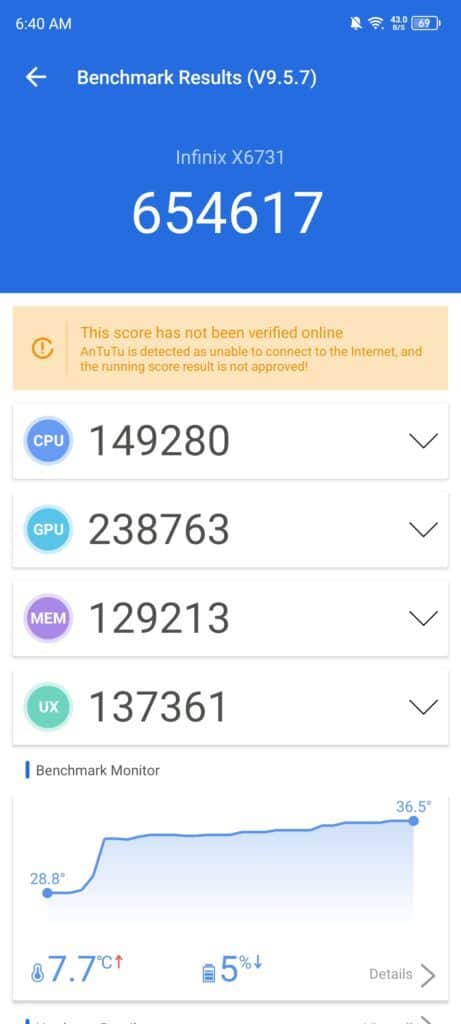
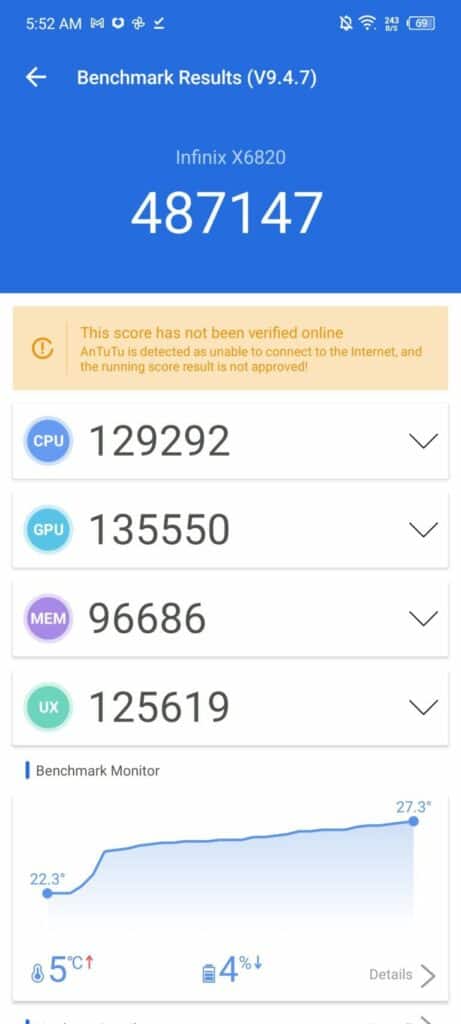
For some reason, I was unable to get Antutu V10 to run the standard benchmark. It kept trying to force me to use the lite version. However, I managed to get V9 to work.
| Antutu | Total | CPU | GPU | MEM | UX |
|---|---|---|---|---|---|
| MediaTek Dimensity 8100 Realme GT Neo 3 V10 | 871235 | 260194 | 215150 | 180938 | 214956 |
| MediaTek Dimensity 8100 Realme GT Neo 3 V9 | 799300 | 185692 | 312783 | 143928 | 156897 |
| MediaTek Dimensity 8050 Infinix Note 30 VIP V10 | 732420 | 205125 | 184374 | 158126 | 184795 |
| MediaTek Dimensity 8050 Infinix Note 30 VIP V9 | 671638 | 162635 | 238399 | 130695 | 139909 |
| Qualcomm Snapdragon 870 Realme GT Neo 3T V9 | 660283 | 166920 | 239045 | 112940 | 141378 |
| MediaTek Dimensity 8020 Infinix Zero 30 V9 | 654617 | 149280 | 238763 | 129213 | 137361 |
| MediaTek Dimensity 920 Infinix Zero Ultra V9 | 487147 | 129292 | 135500 | 96686 | 125619 |
For the Dimensity 8020 vs Dimensity 8050, there is a negligible difference, with the Dimensity 8020 scoring just 2.5% behind the 8050, with the CPU result being the culprit for bringing the score down, with a result of 8% lower.
Compared to the Dimensity 920 on the Infinix Ultra, you are looking at a 38% improvement with the total score with the Dimensity 8020.
Geekbench 5 and 6
I tested with both Geekbench 5 and 6, as I have a historical list of Geekbench 5 results for a better comparison.
In Geekbench 6, the chipsets achieved:
- MediaTek Dimensity 8020
- Single Core: 988
- Multi Core: 3341
- MediaTek Dimensity 8050
- Single Core: 1139
- Multi Core: 3408
For Geekbench 5, the results were:
| Geekbench 5 | Chipset | Single Core | Multi Core |
|---|---|---|---|
| Honor Magic5 Pro | Snapdragon 8 Gen 2 | 1481 | 4932 |
| Honor Magic4 Pro | Snapdragon 8 Gen 1 | 1220 | 3569 |
| Xiaomi Mi 11 | Snapdragon 888 | 1139 | 3693 |
| OnePlus 9 Pro | Snapdragon 888 | 1109 | 3487 |
| Samsung Galaxy S21 Ultra | Exynos 2100 | 1079 | 3381 |
| Google Pixel 6 | Google Tensor | 1042 | 2957 |
| OPPO Find X5 Pro | Snapdragon 8 Gen 1 | 976 | 3484 |
| Asus ROG Phone 3 S | Snapdragon 865+ | 975 | 3357 |
| Realme GT Neo 3 | Dimensity 8100 | 966 | 4056 |
| OPPO Find X3 Pro | Snapdragon 888 | 928 | 3357 |
| Realme X50 Pro | Snapdragon 865 | 910 | 3205 |
| Infinix Note 30 VIP | Dimensity 8050 | 854 | 3047 |
| Infinix Zero 30 | Dimensity 8020 | 777 | 3059 |
| Redmi K30 Ultra | Dimensity 1000+ | 782 | 2890 |
| Samsung Galaxy S20 | Exynos 990 | 772 | 2590 |
| Infinix Zero Ultra | Dimensity 920 | 746 | 2107 |
The scores are about what you would expect; the Dimensity 8050 is fractionally better than the Dimensity 8020. The Geekbench 6 results show a 15% uplift in performance for the single core, which matches the frequency difference.
The Dimensity 920 does OK for its single core result as it shares the same A78 core as the other two chipsets, but it falls significantly behind with multi-core performance. The Dimensity 8020 scores 45% higher.
3DMark Wildlife Stress Test & Thermal Throttling
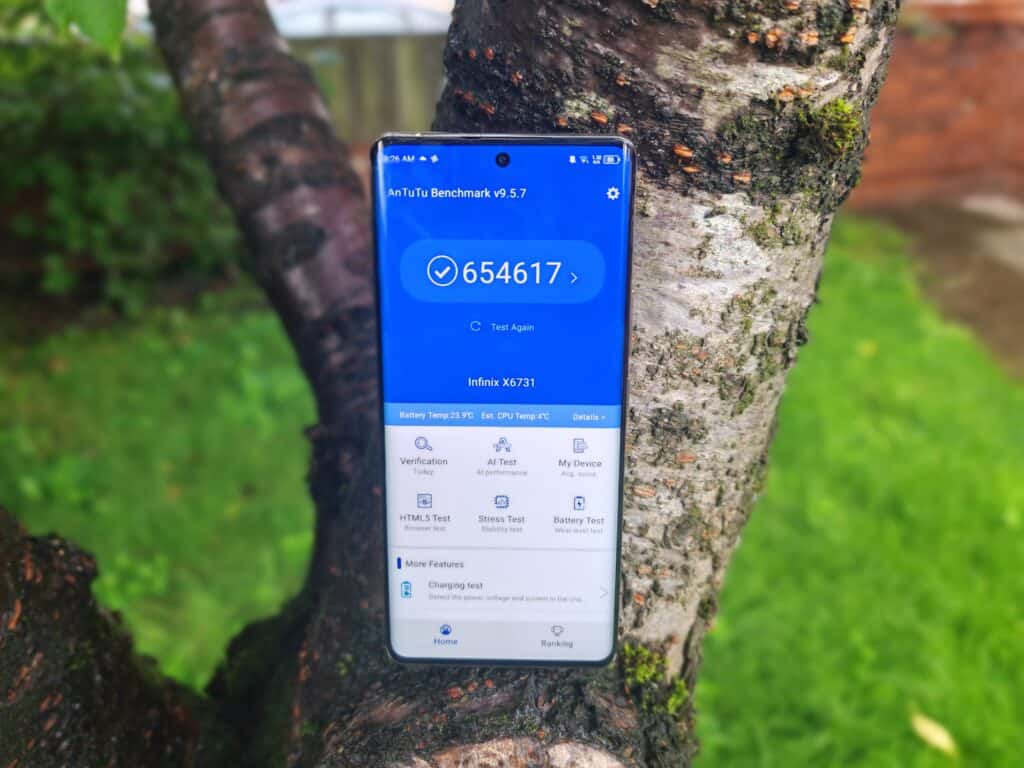
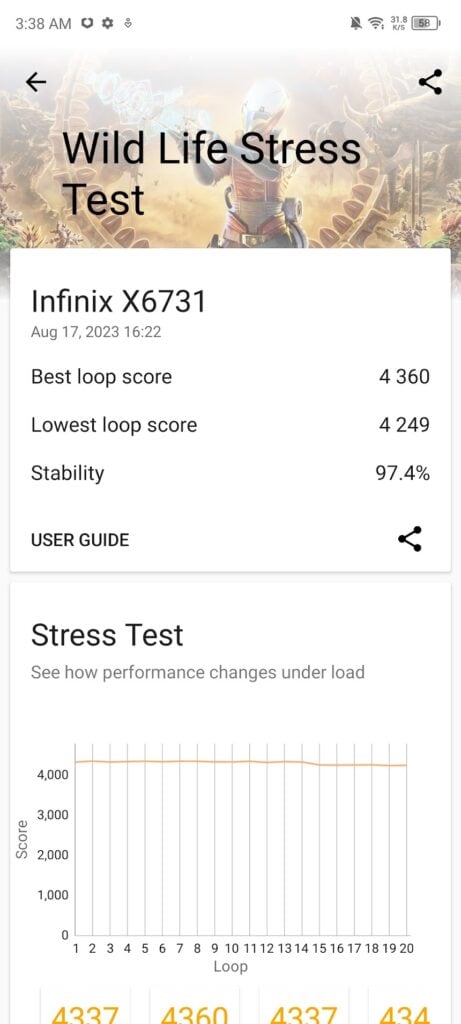
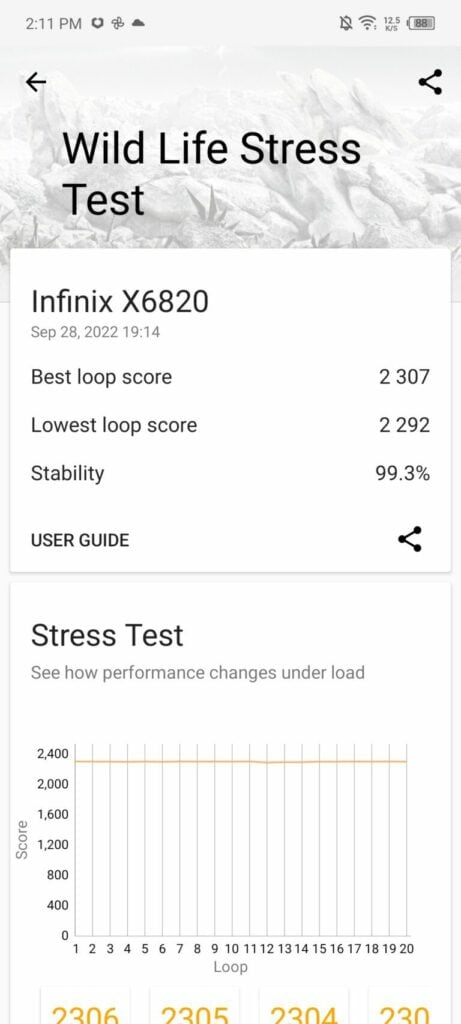
| 3DMark | Chipset | Wild Life High | Wild Life Low | Stability | Temperature | Battery |
|---|---|---|---|---|---|---|
| OPPO Find X3 Pro | Snapdragon 888 | 5765 | 3804 | 66% | ||
| Samsung Galaxy S21 Ultra | Exynos 2100 | 5466 | 6404 | 62.3% | ||
| Xiaomi Mi 11 | Snapdragon 888 | 5550 | 5045 | 90.9% | ||
| Realme GT | Snapdragon 888 | 5850 | 3234 | 55.3% | ||
| Oppo Find X3 Neo | Snapdragon 865 | 5038 | 4942 | 98.1% | ||
| Realme GT Neo 3 | Dimensity 8100 | 5446 | 5399 | 99.1% | 32° to 38° | 100% to 94% |
| Infinix Note 30 VIP | Dimensity 8050 | 4565 | 4506 | 98.7% | 31° to 46° | 100% to 91% |
| Infinix Zero 30 5G | Dimensity 8020 | 4360 | 4249 | 97.4% | 26° to 42° | 72% to 62% |
| OnePlus Nord 2 | Dimensity 1200 | 4161 | 2932 | 70.5% | ||
| Infinix Ultra | Dimensity 920 | 2307 | 2292 | 99.3% | 21° to 29° |
Again, as expected, there is barely any difference between the Dimensity 8020 vs Dimensity 8050. The Dimensity 8050 has a 4.7% advantage for the high score.
The main difference to highlight is the massive improvement in performance, going from the Infinix Ultra to the Zero 30.
The Dimensity 8020 achieves a score that’s 89% higher than the Dimensity 920 on the Ultra. This makes the Infinix Zero 30 a much more appealing option for anyone who enjoys gaming on their phone.
Overall
The Infinix Ultra launched at a relatively high price point of $520 Infinix, and I felt like the Dimensity 920 didn’t quite live up to Infinix’s flagship classification.
The MediaTek Dimensity 8020 is a decent mid-range chipset and a welcome upgrade from the Dimensity 920. You are looking at a significant improvement in the overall performance. Geekbench shows a 38% improvement on the CPU side of things, but it is 3DMark Wildlife where the Dimensity 8020 really shines, with an 89% higher score than the Dimensity 920.
The Infinix Zero 30 will inevitably launch at a higher price point than the Note 30 VIP, which has the Dimensity 8050. It, therefore, seems a bit bizarre that Infinix would choose to put a lower-spec chipset in its flagship device. However, the performance difference is negligible, so it doesn’t matter that much.
I am James, a UK-based tech enthusiast and the Editor and Owner of Mighty Gadget, which I’ve proudly run since 2007. Passionate about all things technology, my expertise spans from computers and networking to mobile, wearables, and smart home devices.
As a fitness fanatic who loves running and cycling, I also have a keen interest in fitness-related technology, and I take every opportunity to cover this niche on my blog. My diverse interests allow me to bring a unique perspective to tech blogging, merging lifestyle, fitness, and the latest tech trends.
In my academic pursuits, I earned a BSc in Information Systems Design from UCLAN, before advancing my learning with a Master’s Degree in Computing. This advanced study also included Cisco CCNA accreditation, further demonstrating my commitment to understanding and staying ahead of the technology curve.
I’m proud to share that Vuelio has consistently ranked Mighty Gadget as one of the top technology blogs in the UK. With my dedication to technology and drive to share my insights, I aim to continue providing my readers with engaging and informative content.

